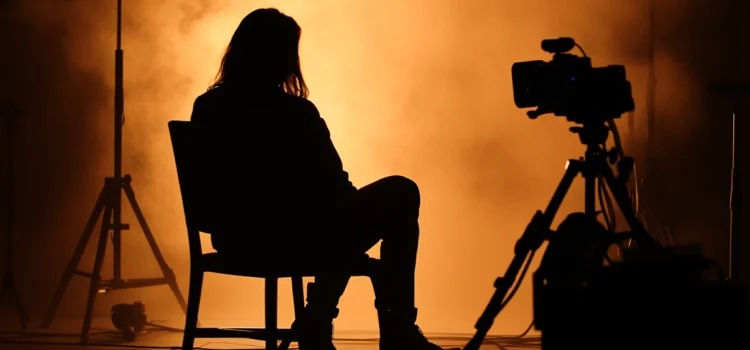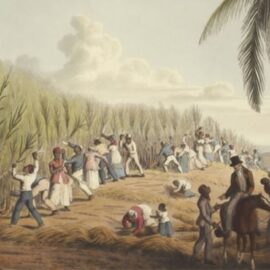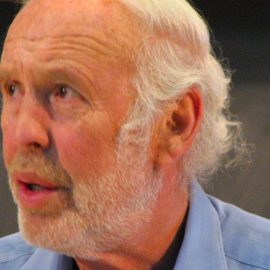

This article is an excerpt from the Shortform book guide to "Unbound" by Tarana Burke. Shortform has the world's best summaries and analyses of books you should be reading.
Like this article? Sign up for a free trial here.
How did Tarana Burke contribute to Surviving R. Kelly? Why did she receive backlash for the docuseries?
Burke has lent her expertise on healing from sexual violence to projects outside her “me too” movement. For example, she contributed to the Surviving R. Kelly docuseries, which detailed R&B artist R. Kelly’s serial abuse of Black girls and women.
Discover the controversy behind Tarana Burke’s R. Kelly docuseries backlash below.
Burke’s Work on Surviving R. Kelly
In a discussion about R. Kelly, Tarana Burke says that she hoped this docuseries would create an opportunity for honest, healing conversations about sexual violence in the Black community, empower Black women to speak up and begin healing, and encourage Black men to join the fight against sexual violence. However, the docuseries provoked significant backlash from the Black community, and she was accused of hating Black men.
(Shortform note: Although Surviving R. Kelly garnered some backlash—including a marked increase in streams of Kelly’s music after the documentary aired—it also galvanized efforts to hold Kelly responsible for sexual crimes he committed over a period of 20 years. After the documentary aired, his record company stopped working with him, his concerts were cancelled, and he was swiftly charged with multiple counts of sexual abuse, sex trafficking, and child pornography. Kelly was convicted of many of these charges and, as a result, was sentenced to 30 years in prison in 2022.)
Burke lists a few reasons for the backlash that resulted from Surviving R. Kelly: First, the Black community often protects men who are accused of sexual violence. This tendency evolved from a history of white women falsely accusing Black men of rape, which led to the men’s incarceration or death. The community is especially likely to protect Black men who make valuable contributions to Black culture—both R. Kelly and James Bevel, who we mentioned earlier, fall into this category. Protecting these men often amounts to silencing or scorning their Black female accusers. Second, because white racists view Black people as a homogenous group, Black people are incentivized not to draw attention to any Black person’s moral failings.
(Shortform note: In Redefining Rape, Freedman provides further context on the history of white women falsely accusing Black men: Throughout the 19th and 20th centuries, white racists equated Black identity with animalistic sexuality—and they painted Black men as natural predators of white women. These beliefs were so widespread that unfounded accusations were often used to justify lynchings of Black men, a legacy that resonates today since, as Michele Alexander (The New Jim Crow) explains, Black men remain unfairly criminalized by the US justice system. The second reason Burke gives for the backlash against Surviving R. Kelly—the Black community’s fear of affirming racist stereotypes—is known as stereotype threat.)
Burke explains that since neither the #MeToo movement nor the fallout of the Surviving R. Kelly series created space for the Black community to begin healing from sexual violence, she continues to promote that healing from inside the community-focused “me too” movement. She hopes that by continuing to share her story and work with individuals within her community, she can foster a supportive environment for Black survivors of sexual violence and encourage a culture of accountability for abusers.
(Shortform note: In the midst of an April 2024 investigation into the rapper Sean Combs (known as “Diddy”) on suspicion of sexual violence and sex trafficking, Burke suggested that the Black community’s attitude toward accountability and support for survivors of sexual violence has shifted in a positive direction since Unbound’s publication. She noted that in Diddy’s case, Black people (and the general public) have been more inclined to believe victims’ accusations and to talk about sexual violence instead of shutting the conversation down. This came as a surprise to Burke, given the backlash she received for working on the Surviving R. Kelly series. Burke attributes this shift in attitude to a changing world—the younger generation, she says, is far less tolerant of bad sexual behavior.)

———End of Preview———
Like what you just read? Read the rest of the world's best book summary and analysis of Tarana Burke's "Unbound" at Shortform.
Here's what you'll find in our full Unbound summary:
- The origin of the viral phrase “me too”
- What Tarana Burke did to heal from the experience of childhood sexual abuse
- The story of the #MeToo movement






